Xumeng Liu
ProDS: Preference-oriented Data Selection for Instruction Tuning
May 19, 2025Abstract:Instruction data selection aims to identify a high-quality subset from the training set that matches or exceeds the performance of the full dataset on target tasks. Existing methods focus on the instruction-to-response mapping, but neglect the human preference for diverse responses. In this paper, we propose Preference-oriented Data Selection method (ProDS) that scores training samples based on their alignment with preferences observed in the target set. Our key innovation lies in shifting the data selection criteria from merely estimating features for accurate response generation to explicitly aligning training samples with human preferences in target tasks. Specifically, direct preference optimization (DPO) is employed to estimate human preferences across diverse responses. Besides, a bidirectional preference synthesis strategy is designed to score training samples according to both positive preferences and negative preferences. Extensive experimental results demonstrate our superiority to existing task-agnostic and targeted methods.
AoM: Detecting Aspect-oriented Information for Multimodal Aspect-Based Sentiment Analysis
May 31, 2023Abstract:Multimodal aspect-based sentiment analysis (MABSA) aims to extract aspects from text-image pairs and recognize their sentiments. Existing methods make great efforts to align the whole image to corresponding aspects. However, different regions of the image may relate to different aspects in the same sentence, and coarsely establishing image-aspect alignment will introduce noise to aspect-based sentiment analysis (i.e., visual noise). Besides, the sentiment of a specific aspect can also be interfered by descriptions of other aspects (i.e., textual noise). Considering the aforementioned noises, this paper proposes an Aspect-oriented Method (AoM) to detect aspect-relevant semantic and sentiment information. Specifically, an aspect-aware attention module is designed to simultaneously select textual tokens and image blocks that are semantically related to the aspects. To accurately aggregate sentiment information, we explicitly introduce sentiment embedding into AoM, and use a graph convolutional network to model the vision-text and text-text interaction. Extensive experiments demonstrate the superiority of AoM to existing methods. The source code is publicly released at https://github.com/SilyRab/AoM.
Phase retrieval of programmable photonic integrated circuits based on an on-chip fractional-delay reference path
Jul 29, 2022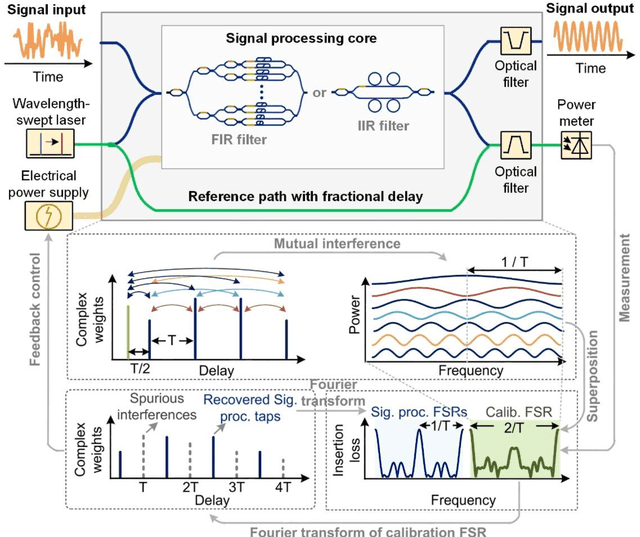
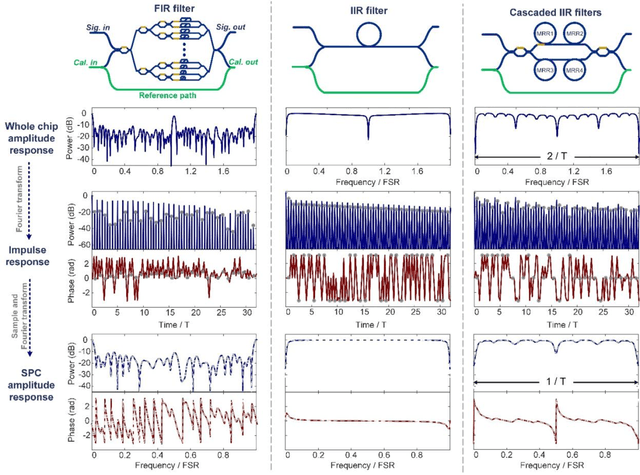
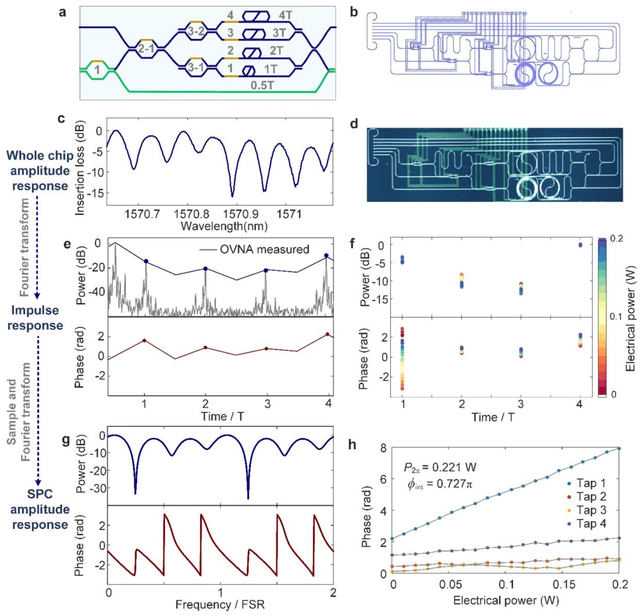
Abstract:Programmable photonic integrated circuits (PICs), offering diverse signal processing functions within a single chip, are promising solutions for applications ranging from optical communications to artificial intelligence. While the scale and complexity of programmable PICs is increasing, the characterization, and thus calibration, of them becomes increasingly challenging. Here we demonstrate a phase retrieval method for programmable PICs using an on-chip fractional-delay reference path. The impulse response of the chip can be uniquely and precisely identified from only the insertion loss using a standard complex Fourier transform. We demonstrate our approach experimentally with a 4-tap finite-impulse-response chip. The results match well with expectations and verifies our approach as effective for individually determining the taps' weights without the need for additional ports and photodiodes.
Optical Adaptive LMS Equalizer with an Opto-electronic Feedback Loop
Nov 09, 2021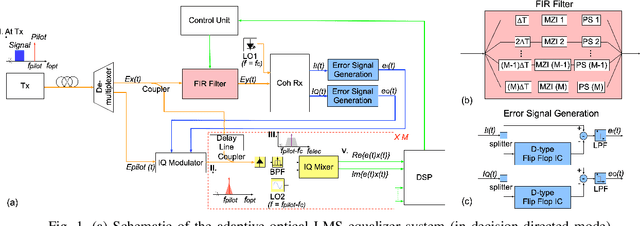
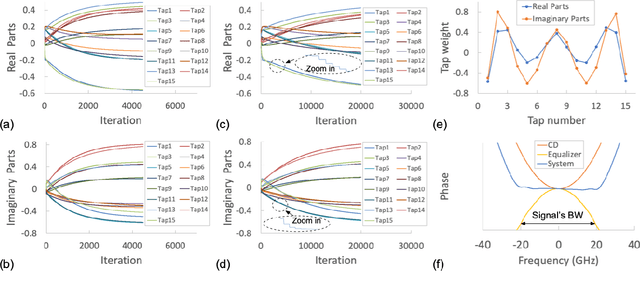

Abstract:We propose a photonic adaptive Least-Mean-Squares equalizer with an opto-electronic feedback loop to determine the updating of an optical Finite-Impulse-Response filter's weights, enabling dispersion compensation introduced by 30-km fiber based on our photonic integrated chip.
 Add to Chrome
Add to Chrome Add to Firefox
Add to Firefox Add to Edge
Add to Edge